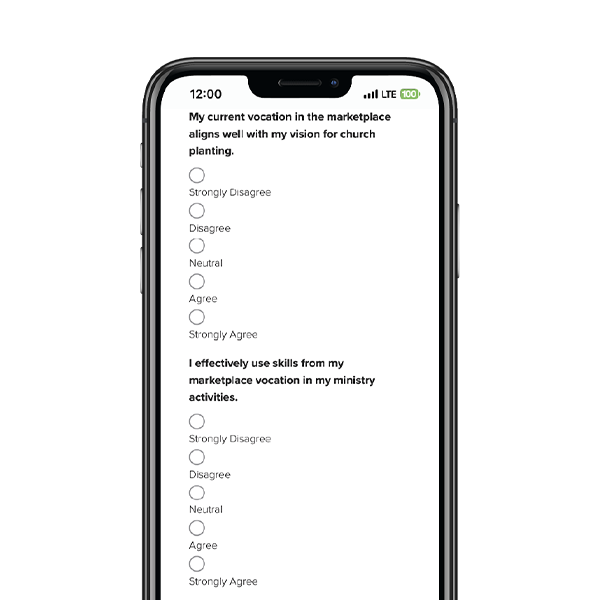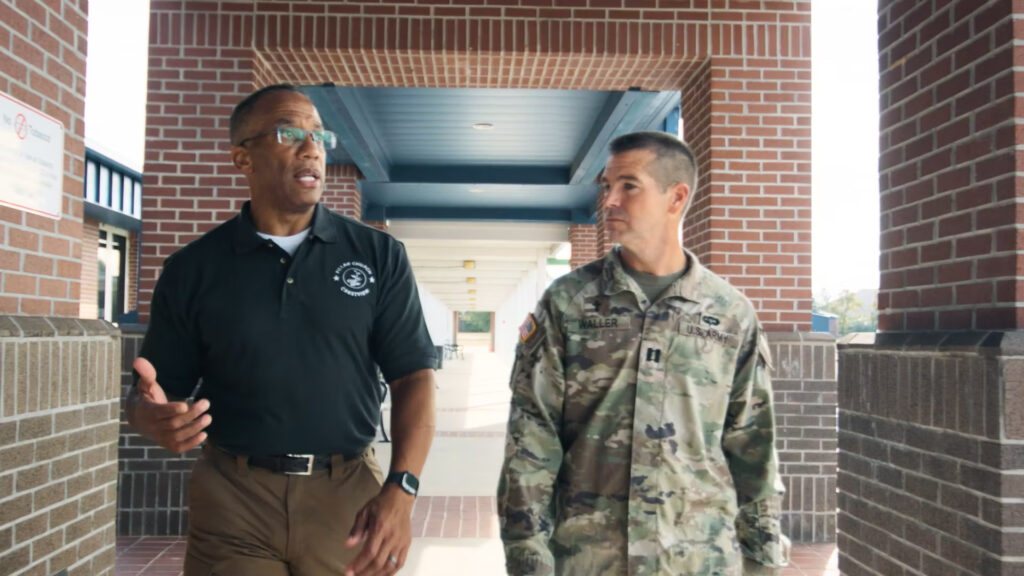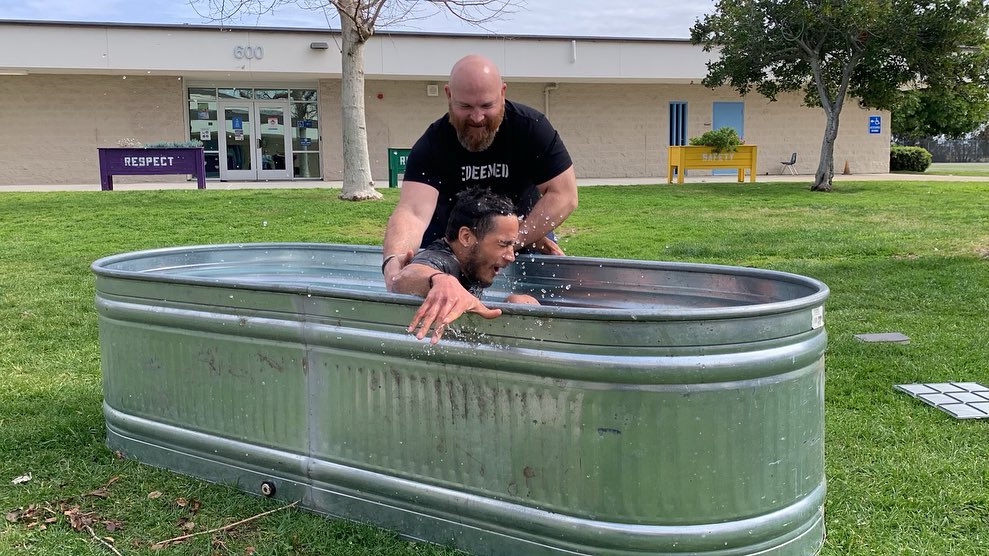By Jonathan Parnell
There are circumstances in life that ask more of us than usual.
There are hardships, trials, and yes, pandemics, that will require more of pastors than can fit on any course catalog or job description. It’s in times like these that we must pastor more desperately in the power of the Holy Spirit.
As pastors, we must take ownership of our calling at the toughest points. We must take stock of our weaknesses, resolving to trust the promises of God and depending on Him to do more in and through us than we’ve ever needed before. That’s the invitation put before us in this season.
Will you accept it?
I pray you will, pastor, and in this untraversed terrain, here are five exhortations for the journey:
1. Embrace (and preach) the sovereignty of God.
As I’ve been reading through the book of Jeremiah, I can’t help but draw parallels between the pestilence of Jerusalem in that day and our current pandemic. Things were much worse back then, of course, but both are situations that captivated the attention of everyone in the land. Whether the people downplayed the situation or overreacted, everyone was talking about the turbulence of the times, and they needed help. Into that context, Jeremiah speaks:
“Can any of the worthless idols of the nations bring rain? Or can the skies alone give showers? Are you not the Lord our God? We therefore put our hope in you, for you have done all these things” (Jeremiah 14:22, CSB).
Jeremiah grounds his hope in God’s sovereignty. His hope is in the fact that God is the one who sends rain. That realization had to precede any measure of faith that God could do something about their drought. The same thing goes for the coronavirus.
God is sovereign over every single subatomic particle in the universe, including every strand of this virus. Nothing is outside of His control, least of all the spread and timing of a pandemic. Pastor, don’t shrink back from heralding God’s supremacy. If this virus is going to end, it has to be because God ends it.
2. Clarify your hope.
After embracing the sovereignty of God — first for yourself and then by preaching it — clarify your hope. God has to end this. He will most certainly use different means like social distancing, washing hands and so forth, but we must never confuse the means with our hope itself. Our hope is God.
In Jeremiah 17, he contrasts the person who trusts in the Lord to the person who trusts in mankind. “Cursed,” Jeremiah says, “is the person who trusts in mankind. He makes human flesh his strength, and his heart turns from the Lord.” On the other hand, he describes the person who trusts in the Lord as blessed.
This is less about practice and more about clarity. For example, we wash our hands and tell our people to wash their hands, but we don’t hope in our washed hands to protect us. We hope in God as we wash our hands.
3. Seek to grow in holiness.
In Hebrews 12:11 we’re told to endure suffering as disciple because it will “yield the peaceful fruit of righteousness to those who have been trained by it.” How then might you be “trained” by these current circumstances, whether through major insecurities or minor inconveniences?
Avail yourself of the opportunity that God might be pleased to conform you more into the image of Jesus during these strange days. Don’t deviate from your spiritual habits — deepen them. Meditate more on the Word of God. Memorize the psalms. Consider fasting for a day during the week. Serve your wife and children like never before. Pray twice as long because you’re carrying double the burden.
In this season, seek especially to grow in holiness, so that you might be, as Robert Murray M’Cheyne put it, “as holy as a pardoned sinner can be.” While the comforts of society seem to be falling apart, what if God is putting us more together?
4. Be mainly thankful.
“How are you, pastor?”
Our default response to such a question, at least internally, should be that we’re mainly thankful — with a carefully crafted “mainly” and “thankful.”
Mainly thankful doesn’t deny difficulties, or the fact that there are all kinds of things we wish were different. Those things are real, and we should acknowledge them, but when it’s all said and done, we’re mainly thankful (see 1 Thessalonians 5:18).
Take stock of God’s grace in your life. As the old song goes, “Count your blessings, name them one by one…” You are far richer in God’s mercy than you could ever deserve. What do we have that we did not receive? And if then we received it, how in the world could we boast as if we did not receive it? (1 Corinthians 4:7)
Our very breath — each heartbeat — are these our wages? Is God paying us our dues? Does God owe us these breaths and heartbeats and sunrises? No, not at all. It’s all grace.
We are every bit surrounded by grace — miraculous grace. We are the brothers of Jesus, and He’s not ashamed to call us so (see Hebrews 2:11). We’re co-heirs with Him (see Romans 8:17), which means we possess every spiritual blessing (see Ephesians 1:3) and one day, we’re going to inherit the world (see 1 Corinthians 3:22). We’re never going to be separated from God’s love, not even by death (see Romans 8:35–39). This means, we don’t just conquer, we’re more than conquers through Him who loves us (see Romans 8:37).
5. Don’t judge your pastor-brothers.
Pastors everywhere are facing the challenge of how to faithfully shepherd their flocks in these strange days, and we won’t all come to the same conclusions. And that’s okay.
This isn’t a time to check your ecclesiological convictions at the door, but more than ever, we should lean into those convictions as helpful guard rails for what we’re willing to do.
For example, it’s the conviction of our pastoral team that we won’t do a digital corporate worship gathering as a church. The question for us is not how to replicate the church’s corporate gathering online, but it’s how to shepherd our people in the absence of the corporate gathering.
Our sister-church down the street livestreams their entire service to an empty room, imagining the many who are watching from their screens at home. Rather than criticize that approach, we’d do well to hear the words of Paul in Romans 14:4:
“Who are you to pass judgment on the servant of another? It is before his own master that he stands or falls. And he will be upheld, for the Lord is able to make him stand” (ESV).
This doesn’t mean we don’t believe one approach is right and another is wrong or that one is better than the other. That’s what convictions are for. But it means we see one another, our pastor-brothers, as men who answer to Jesus and who are trying their best to please Him. I can’t imagine any other way we’re supposed to hold convictions and express goodwill toward one another.
I pray character like this will outlast this pandemic!
Brothers, we’re going to get through this. What a time to be alive and to have such a calling as Jesus’ under-shepherds!
Let us go hard, “And after [we] have suffered a little while, the God of all grace, who has called [us] to his eternal glory in Christ, will himself restore, confirm, strengthen, and establish [us]. 11 To him be the dominion forever and ever. Amen.” (1 Peter 5:10–11, ESV)
Looking for hope and encouragement in this unpredictable season? Click here for more helpful and practical resources about church planting and pastoring amid coronavirus.
Published April 16, 2020




